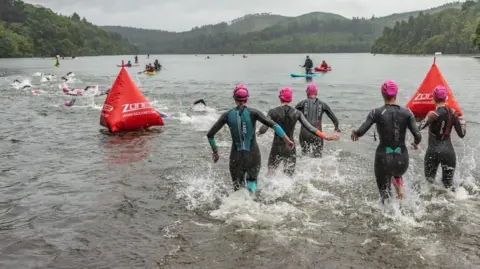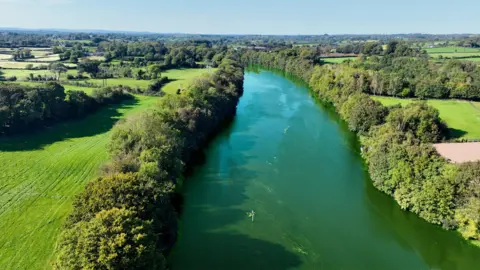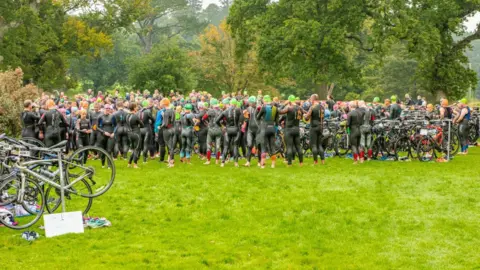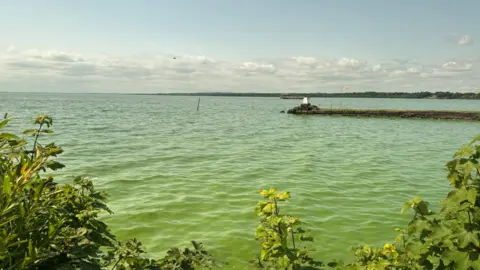Triathlon group cancel swim due to blue-green algae
 Kevin Morgan
Kevin MorganA triathlon group says it has cancelled the swimming leg of its upcoming Mourne Sprint Triathlon after it was confirmed that blue-green algae was present in Castlewellan Lake last Friday.
The event is due to take place on 7 September.
Chris Campbell, Director of Olympian Triathlon Belfast, said the organisers did not want to "risk athletes potentially getting ill".
There have been 168 confirmed reports of blue-green algae in Northern Ireland in 2024, according to the Department of Agriculture, Environment and Rural Affairs (DAERA).
Allow Facebook content?
On Sunday protestors gathered at Stormont to call for more action over Lough Neagh, which has been impacted by blue green algae.
Mr Campbell told BBC Radio Ulster's Evening Extra programme that the swim portion of the triathlon had to be rearranged.
"We will be running a Duathlon, so there will be a run, bike, run format," he said.
"The event will still go ahead in Castlewellan, but unfortunately none of the athletes will be able to swim in the lake due to the algae."
 Getty Images
Getty ImagesMr Campbell says the water quality in Castlewellan Lake is "very, very good".
"We’ve never had to cancel the swim there before, but unfortunately, this algae seems to be everywhere at the minute."
In a statement, DAERA says the presence of blue green algae was confirmed on 30 August, but added that "any decision made to restrict access or activities on the lake is a matter for the site operator or event organiser".
 Kevin Morgan
Kevin MorganNewry, Mourne and Down District Council put out a social media post advising the public to adhere to the following:
- Do not enter or swim in the water
- Do not use the water for recreational water sports
- Do not drink the water
- Do not let dogs or livestock near the water
- Do not fish or eat fish caught recreationally from the water
Blue-green algae in Northern Ireland
Blue-green algae, technically known as cyanobacteria, is a collection of microscopic organisms that are naturally present in lakes and streams.
Under certain conditions, blue-green algae can become abundant in warm, shallow, undisturbed, nutrient-rich surface waters that receive a lot of sunlight.
When this occurs, the algae can form blooms that discolour the water or produce floating mats or scums on the water’s surface.

So far it has primarily been confirmed in Lough Neagh and the Lower Bann, but other sites have also been impacted, including the north coast bathing waters and the Fermanagh lakes.
